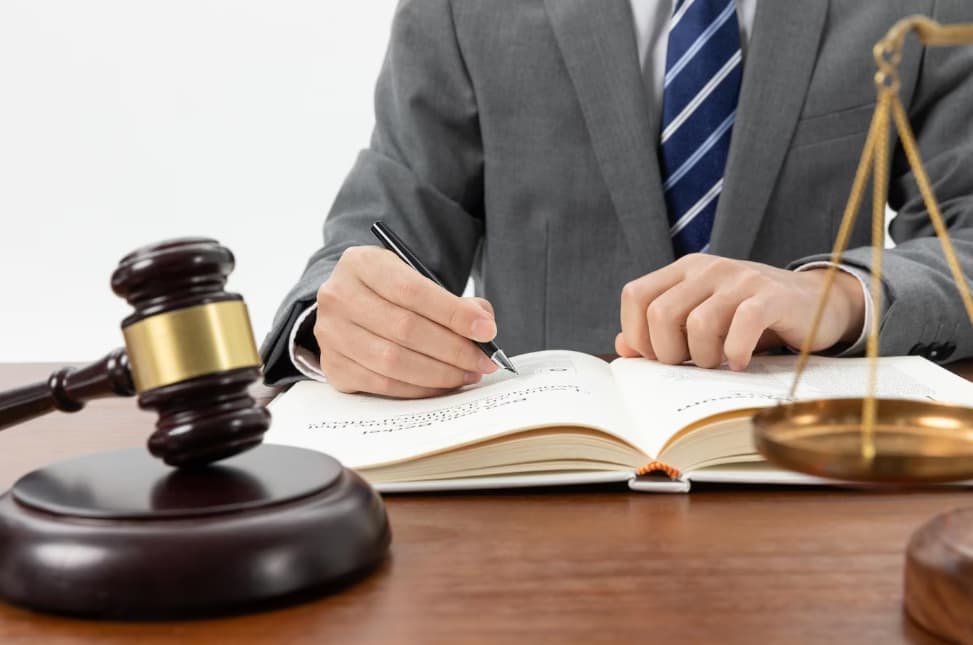A litigation attorney helps people and companies resolve legal disputes through filing and defending lawsuits. When you suffer harm from someone else’s actions, you may consider suing them to get compensation.
But navigating the complex legal system on your own is difficult. An experienced litigation attorney can analyze your situation, build strong cases, negotiate settlements, and represent your best interest in court if necessary.
What Is a Litigation Attorney?

Have You Suffered Harm and Are Thinking About Suing?
Getting injured or losing money because of someone else’s negligence or wrongful acts is upsetting. The harm may result from:
- Car, truck, or motorcycle crashes
- Slip and fall accidents
- Defective products
- Medical Mistakes
- Breach of contract
You might be owed significant compensation. But pursuing a lawsuit and proving your claims in court is complicated. An attorney focuses on litigation daily.
They understand how to prove liability, and damages, weigh settlement offers, and strengthen your position throughout the case.
Without proper legal advice, key evidence or arguments may get missed. Let’s explore What Is a Litigation Attorney? & do so you understand their value.
What is a Litigation Lawyer’s Role and Responsibilities?
A litigation lawyer, also called a litigator or trial lawyer, provides legal services to plaintiffs and defendants in civil lawsuits. Their duties include:
Analyzing Case Merits
- Reviewing what happened to see if you have a real case
- Identifying liable parties
- Determining the strongest legal claims
- Assessing potential defenses
- Estimating case value
Filing Lawsuit Paperwork
- Drafting detailed complaint citing facts, allegations
- Formally filing the lawsuit in court
- Serving defendants with a complaint
Gathering Evidence
- Conducting interrogatories
- Obtaining relevant documents
- Interviewing eyewitnesses
- Working with expert witnesses
- Deposing parties in the case
Building Negotiation Strategies
- Communicating with insurance adjusters
- Sending demand letters citing laws broken
- Advocating for full and fair compensation
Going to Court if No Settlement
- Filing motions and responses needed.
- Presenting opening/closing arguments.
- Examining witnesses and evidence at trial.
- Clearly explaining laws and past rulings.
An experienced litigation lawyer handles these litigation tasks allowing you to focus on your daily life.
Key Signs You Need to Hire a Litigation Attorney
If you answer “yes” to one or more below, a litigation lawyer can help protect your rights:
- Have you suffered physical, emotional, or financial harm in an accident?
- Did someone else’s intentional actions or negligence cause the harm?
- Do you want to recover damages by filing a lawsuit?
- Is the at-fault party refusing liability or offering too little?
- Are you struggling to value all current and future losses?
- Do ongoing medical issues still need treatment?
- Are you unsure how strong your case theories or evidence are?
If navigating any of the above feels overwhelming, don’t go it alone. Hire an experienced litigator!
Evaluating Litigation Attorney Experience
-
Verify Case Specific Expertise
Seek litigators with years of handling cases substantially similar to yours. This niche focus ensures an understanding of legal intricacies in your type of dispute.
For example, if you suffered severe injuries in a truck collision with a commercial carrier, find a litigator with in-depth knowledge of federal regulations unique to the trucking industry.
-
Check Track Record and Credentials
Vet litigation qualifications beyond having a law degree and license. Evaluate win-loss rates, case settlements, and ratings by judges and attorney peers.
Membership in professional groups like the American Association for Justice signals ongoing education and trial skills.
-
Gauge Rapport at Consultation
Schedule initial case assessments with two to three top choices. Notice if communication clicks and the levels of attention lawyers give to learning your situation. Feeling confident in your legal team matters as complex proceedings unfold.
Selecting accomplished litigators ready to fight for maximum compensation is vital to seek justice.
Litigation Lawyer Responsibilities Through Key Lawsuit Stages
-
Initial Investigation and Filing
Skilled litigators dive deeply into case details first. Collecting information positions them to:
- Determine the strongest legal theories
- Pinpoint all contributing factors
- Identify all potential defendants
- Armed with supporting evidence, they serve notice to defendants through an official complaint filed with the court outlining allegations and legal causes of action.
-
Discovery Phase
This pre-trial phase enables case preparation and evidence collection. Litigators utilize:
- Written questions (interrogatories)
- Requests for relevant documents
- Subpoenas to access records
- Depositions of parties and witnesses
- Powerful evidence uncovered during discovery improves the odds of favorable rulings or settlements.
-
Pretrial Motions
Litigators file petitions regarding evidence procedures, and legal issues preceding trial, including:
- Motion to Compel – Asks judge to order defendant’s cooperation
- Motion to Dismiss – Blocks defendant moves for case dismissal
- Motion in Limine – Shields possibly prejudicial evidence from juries
-
Settlement Negotiations
Once discovery is complete, litigators analyze findings to guide negotiations. Demand letters citing laws and evidence often initiate talks with insurers about payment to cover:
- Medical bills
- Lost wages
- Pain and suffering
- Loss of enjoyment of life
- Punitive damages
-
Trial Litigation
If defendants won’t pay reasonably, litigation lawyers proceed to court armed with proof of misconduct and harms incurred demanding justice through large financial judgments.
With so much at stake, connect with responsive litigators ready to relentlessly fight for your rights!
Top 5 Litigation Lawyer Alternatives to Avoid
- Non-Lawyers Offering Legal Consulting
While seemingly affordable, non-attorney consultants lack the skills to file cases or make court appearances which hampers clients. Regulatory fines also threaten those practicing law without licenses.
- Inexperienced Recent Law School Graduates
All lawyers must start somewhere to gain know-how. Yet complex litigation is risky for new attorneys to spearhead while navigating learning curves.
- General Practice Family or Estate Planning Law Firms
While respected in certain legal domains, litigating injury cases differs greatly from will or trust administration. Relevant litigation experience is key.
- Heavily Backlogged Big City Firms
Large metro firms boast strong reputations but outsized caseloads risk less individual case attention. Optimal litigation requires a focus on case specifics.
- Discount Mill Law Firms Chasing Volume
Beware firms handling 300+ cases at once. That volume makes meticulous trial preparation improbable. Case value also motivates them less in settlement talks.
Key Questions to Ask During Litigation Lawyer Consultations
- Are you licensed in [state name] and eligible to represent my case in local courts?
- How much experience do you personally have taking similar cases to trial and negotiating top settlements?
- What unique insights do you have into building strong pretrial preparations and courtroom arguments for cases like mine?
- What firm resources are available to thoroughly assess complex evidence and medical details central to my claims and losses?
- If my case may necessitate expert testimony on technical matters, do you have witness connections suitable to strengthen arguments?
- What types of electronic case management systems and litigation support does your firm utilize to organize facts, documents, expert analysis, etc. to reinforce my position?
- How frequently can I expect updates during lengthy waiting periods typical in civil proceedings?
- What are the fee payment structures or contingency arrangements available to clients?
- Can you share contact info for at least 3 past clients from comparable cases I can call as references?
Realistically, what timeframe can I expect from lawsuit filing to jury verdict/settlement finalization if we are unable to settle out of court?
Gaining clear expectations from prospective litigators on these common client questions is prudent before formalizing legal partnerships.
Also Check:
- What Kind of Lawyer Do I Need To Sue A School
- When is it Too Late to Get a Lawyer for a Car Accident
- How Much Does a Traffic Lawyer Cost
Conclusion – Litigation Lawyers Empower Pursuit of Rightful Compensation
Suffering serious harm such as catastrophic injuries, disability or fatality of loved ones due to avoidable incidents generates turbulent emotions. Negligent parties may be liable for immense compensation under the law.
Yet actually attaining equitable remedy requires in-depth legal capabilities and steely negotiation determination possessed uniquely by seasoned litigators.
Don’t deny yourself and your family members the financial recovery and closure you likely deserve. Partner with responsive litigation attorneys boasting specialty expertise central to your case specifics.
With justice as the goal, savvy litigators masterfully navigate bewildering lawsuit complexities through to final satisfaction. Schedule consultations to get started on the path toward rightful restitution today.



